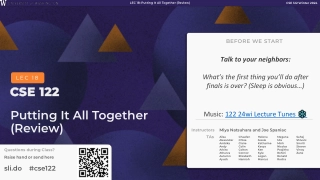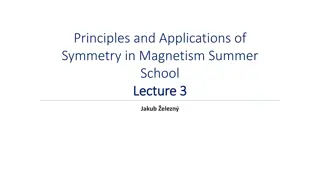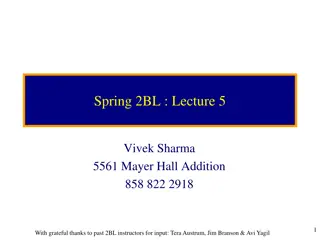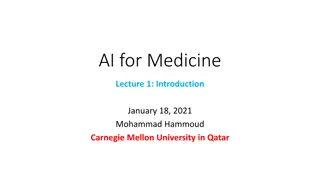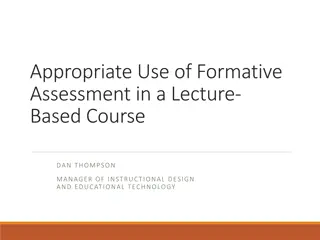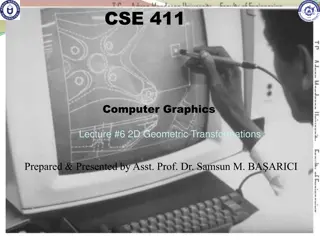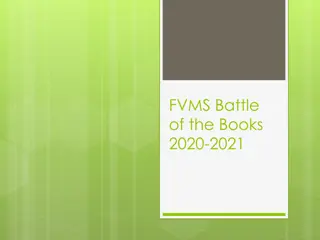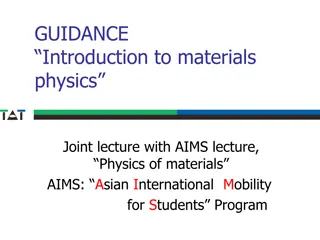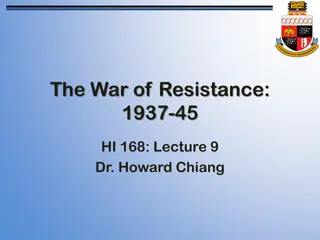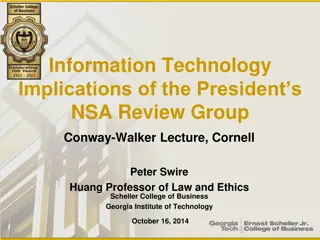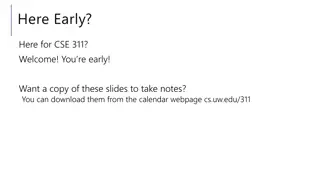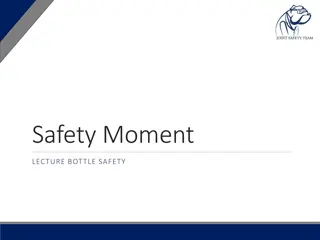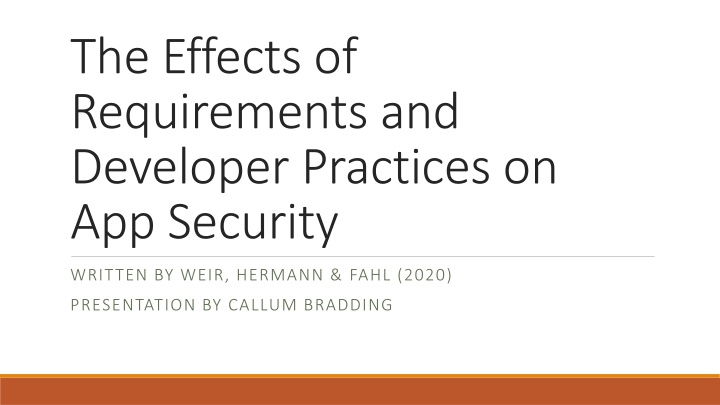
Impact of Requirements and Developer Practices on App Security
Explore the research by Weir, Hermann & Fahl on the effects of requirements and developer practices on app security. Discover how security-enhancing activities and interactions in development teams can lead to fewer security defects. Uncover insights on the use of security assurance techniques by Android developers and the importance of access to security experts.
Download Presentation

Please find below an Image/Link to download the presentation.
The content on the website is provided AS IS for your information and personal use only. It may not be sold, licensed, or shared on other websites without obtaining consent from the author. If you encounter any issues during the download, it is possible that the publisher has removed the file from their server.
You are allowed to download the files provided on this website for personal or commercial use, subject to the condition that they are used lawfully. All files are the property of their respective owners.
The content on the website is provided AS IS for your information and personal use only. It may not be sold, licensed, or shared on other websites without obtaining consent from the author.
E N D
Presentation Transcript
The Effects of Requirements and Developer Practices on App Security WRITTEN BY WEIR, HERMANN & FAHL (2020) PRESENTATION BY CALLUM BRADDING
Motivation Software security and privacy have become major problems for us as a society Software developers play a key part in creating services and applications that can protect the user There are a lot of inexpensive security assurance techniques available for software developers Therefore, it is proposed that maybe developers do not use these techniques enough within their project
Problem To investigate how big a problem this may be in practice. Weir, Hermann & Fahl developed four research questions. 1. To what extent, and how, does a perceived need for security and privacy lead to security-enhancing activities and interactions in the development team? 2. To what extent do the need for security, the involvement of specialist roles, and the use of assurance techniques in a development team lead to fewer security defects? 3. What proportion of Android developers have access to security experts? 4. To what extent do Android developers actually use assurance techniques?
Phase 1: Questionnaire To answer this, they conducted an online survey with Google Play Android developers Only developers that had the 100+ downloads & updates requirement in Google Play were surveyed They asked about personal questions such as team & developer environments & practices, the number of apps they worked on and demographic information They were also asked what secure development practices they used & whether they had access to security professionals
Phase 1 Cont. To produce a measurable result for RQ1, a survey score was created based on the questionnaire The higher the score, the better the security of the application The Expertise Support Score, Requirements Score, Developer Knowledge, and Assurance Technique Score are all encoded as integers Security Update Frequency is the product of two questions to give one result
Phase 2: Application Analysis For the second phase of the project, they downloaded and analysed apps corresponding to survey responses They used a selection of vulnerability scanners to analyse these apps They covered three key areas: SSL Security, Cryptographic API Misuse, and Privacy Leaks To investigate & measure RQ2, they defined scores to represent the outcome fewer security defects
Results RQ1: To what extent, and how, does a perceived need for security and privacy lead to security-enhancing activities and interactions in the development team? These graphs show that the use of assurance techniques & security updates increase based on the importance of security for the application This is because using assurance techniques costs time & financially Updating apps also costs and contains more security updates for apps where security is more important
Results RQ2: To what extent do the need for security, the involvement of specialist roles, and the use of assurance techniques in a development team lead to fewer security defects? Most of the results show that the use of assurance techniques was not associated with better security However, this result suggests that the involvements of security experts is associated with worse Cryptographic API misuse outcomes, albeit not by much This is probably because security experts use cryptography in applications more frequently
Results RQ3: What proportion of Android developers have access to security experts? Between 14% and 22% of developers work with security experts In order to protect applications from more vulnerabilities, more security experts should be hired to work with developers
Results RQ4: To what extent do Android developers have actually use assurance techniques? Using the 95% confidence intervals from Figure 9 we can derive the upper & lower bounds Only between 22% and 30% regularly use assurance techniques The most common techniques among those who used at least two regularly were Automatic Static Analysis & Config Review. Followed by Automatic Static Analysis & Code Review
Something to Consider They chose a random sample of 55,000 developers from 312,369 developer accounts A link was sent to their email address containing the survey Therefore obviously being developers and security conscious about unsolicited emails, they state that they received 330 valid surveys Maybe developers who are more security conscious, tend not to respond to reply to unsolicited emails? They were only able to analyse applications that were free on the Google Play store This may introduce a bias, as apps that cost more money might have more backing & therefore more security experts behind it
Thanks For Listening! PLEASE FEEL FREE TO ASK QUESTIONS

